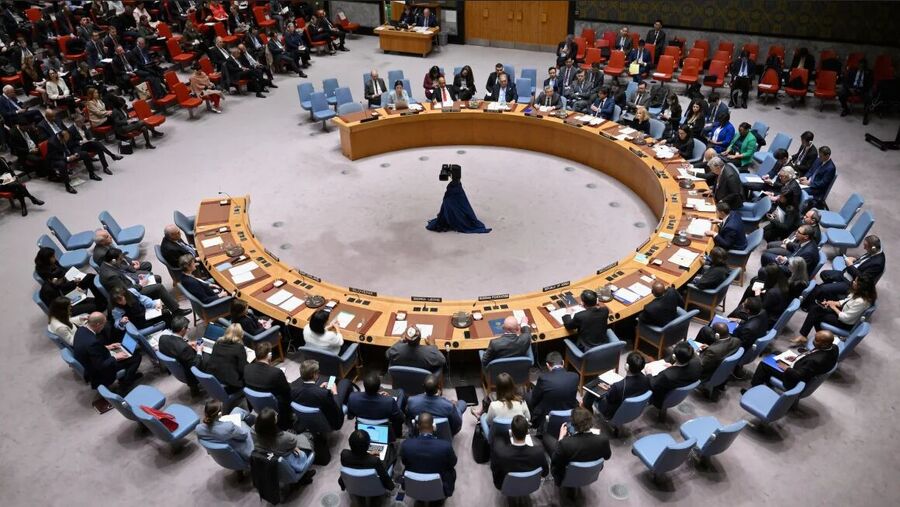
The US has vetoed a UN Security Council (UNSC) resolution that would have paved the way for the State of Palestine to gain full membership at the UN. The vote, held during a lengthy session in New York yesterday, saw 12 countries vote in favour of the resolution, while Britain and Switzerland abstained.
Comment: Britain likely knew the US would veto.
Robert Wood, the US deputy envoy to the UN, defended the veto, stating that Washington believes the only path to Palestinian statehood is through direct negotiations between Israelis and Palestinians.
Comment: The same Palestinians the UN believes Israel is genociding?
The US has overseen direct negotiations since the 1990s with the Oslo Accords marking the beginning of formal negotiations between Israel and the Palestinian Liberation Organisation (PLO). Direct negotiations failed to deliver Palestinians the dream of statehood and instead under US watch, Israel further entrenched its illegal occupation and annexed the very territory set aside for a Palestinian state.
The resolution's failure was widely anticipated, as the US, a staunch ally of Israel, holds veto power at the Security Council and had previously expressed opposition to its passage. The vote comes amid the ongoing Israeli aggression in Gaza, which has claimed the lives of nearly 34,000 Palestinians, the overwhelming majority of whom are women and children, and created a humanitarian crisis in the coastal enclave.
Currently, the State of Palestine holds non-member observer status at the UN. To become a full UN member, an application must be approved by the Security Council and then gain support from at least two-thirds of the General Assembly.
Ziad Abu Amr, the UN special representative for the State of Palestine, appealed for support before the vote, emphasising Palestinians' longing for self-determination, freedom, security and peace in an independent state.
Some 139 countries have recognised the state of Palestine and a positive vote in the Security Council would have been an expression of the will of the international community. Israel, aided by the diplomatic cover of Washington, has been hostile to the international consensus.
Israel's hostility was on display yesterday when the ambassador of the apartheid state to the UN, Gilad Erdan, slammed the council for even considering a resolution on the recognition of a Palestinian state. "If this resolution passes - God forbid - this should no longer be known as the Security Council but as the 'terror' council," he said.
Abu Amr dismissed the US claim that the resolution would jeopardise political negotiations and prospects for peace, citing the establishment of the state of Israel through UN Resolution 181 as a precedent. Israel along with several other countries gained recognition through a vote in the General Assembly and according to one opinion Palestinians can bypass Washington's obstruction in a similar manner.
Despite the setback, Abu Amr expressed hope that the international community would grant Palestinians the opportunity to become an integral part of the global effort to achieve international peace and security.



Reader Comments